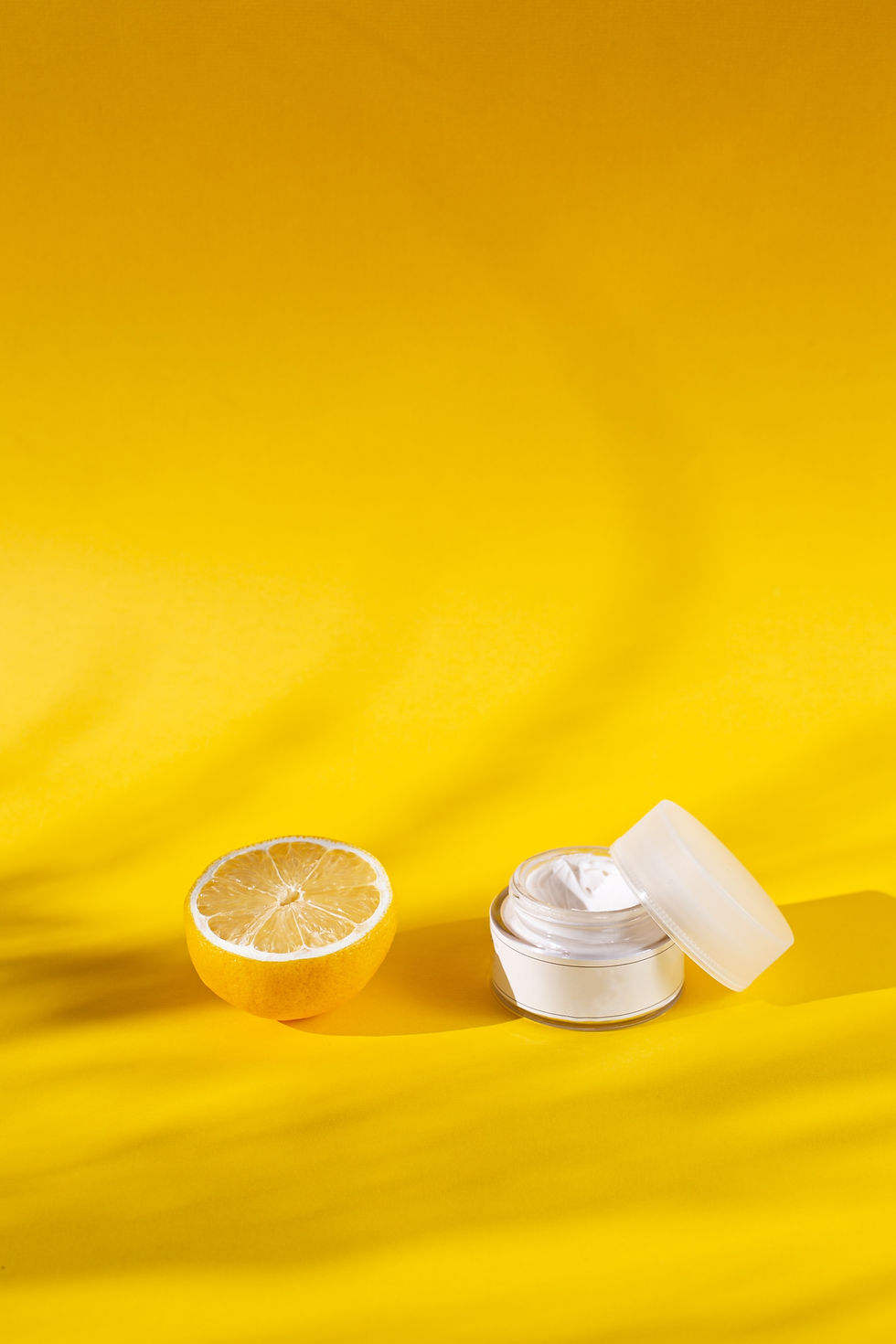Behind Product Claims: Understanding Certification Labels
- Viv

- Aug 25, 2025
- 4 min read
Updated: Sep 6, 2025
In a world where every product shouts “green,” “clean,” or “cruelty-free,” navigating the beauty and personal care aisles can feel like decoding a secret language. Today’s savvy shoppers aren’t just chasing trends—they’re chasing values. From eco-friendly packaging to ethical sourcing, what's on the label matters more than ever.
This guide breaks down the buzzwords, helps you spot the genuine from the gimmicky, and empowers you to shop smarter. Because choosing products that match your health goals and your principles? That’s what real beauty looks like.

Just because a product is labeled vegan doesn’t mean it’s cruelty-free—it might contain no animal ingredients but still be tested on animals. Similarly, packaging made from recycled plastic could still leach harmful chemicals, making it far from non-toxic. This kind of misleading overlap is a common greenwashing strategy, where brands use feel-good terms to give an illusion of sustainability or safety without meeting all the criteria. That’s why it’s so important to look beyond single claims and dig into the full story behind a product. Certifications and transparency matter more than buzzwords.
Cruelty-Free
Indicates a product was developed without testing on animals. This appeals to animal welfare-conscious consumers, but beware: without certification (like Leaping Bunny), the term may be used loosely.
Vegan
Means the product contains no animal-derived ingredients—including less obvious ones like honey, beeswax, or collagen. Vegan doesn’t automatically mean cruelty-free, as some vegan items may still be tested on animals.
Leaping Bunny Certified
This trusted certification ensures no animal testing was conducted at any stage of product development. It’s often seen as the gold standard for cruelty-free verification.
PETA Certified
Confirms that the product avoids both animal testing and animal-based ingredients, aligning with ethical treatment principles.
B-Corp Certified
Signifies that a company meets rigorous standards for social and environmental responsibility, including ethical labor practices and sustainability.
Carbon Neutral / Climate Neutral
Shows that the company offsets its carbon emissions, often through investments in renewable energy, reforestation, or emission-reduction projects.
Sustainably Sourced
Means ingredients were harvested in ways that protect ecosystems, biodiversity, and local communities, often with minimal environmental disruption.
Biodegradable Packaging
Packaging materials are designed to break down naturally, reducing landfill waste. Certification helps confirm it truly meets biodegradability standards.
Plastic-Free / Recyclable / Compostable
Plastic-Free: Contains no plastic parts, often using natural or alternative materials
Recyclable: Designed to be broken down and reprocessed into new products
Compostable: Safely decomposes in compost systems, returning nutrients to the soil
Non-Toxic
Suggests the product is formulated without harmful or hazardous chemicals. However, “non-toxic” isn’t consistently regulated, so reviewing the ingredient list is key.
Free-From [X]
Highlights the absence of specific ingredients, such as parabens, sulfates, gluten, or synthetic fragrances—especially helpful for sensitive skin or allergy concerns.
Dermatologist-Tested
Means a skin expert has evaluated the product. However, this doesn’t guarantee universal safety or that it’s suitable for all skin types.
Hypoallergenic
Formulated to reduce the likelihood of allergic reactions. It’s not a promise of zero irritation, so patch testing is still advised.
EWG Verified
Earned from the Environmental Working Group, it indicates that the product meets strict health and safety standards regarding ingredient safety and transparency.
Medical-Grade
Typically refers to products with high-potency active ingredients designed for targeted skin concerns. Often used in professional skincare settings and may meet FDA criteria.
Organic / USDA Organic
Implies ingredients were grown without synthetic pesticides or fertilizers. “USDA Organic” follows stringent federal regulations for organic farming and processing.
Natural
Generally suggests ingredients are sourced from nature rather than synthetic compounds, though the term isn’t strictly regulated and can be vague.
Plant-Based / Botanical
Uses primarily plant-derived ingredients like herbs, roots, flowers, or essential oils. This claim aligns with clean, green, and holistic wellness values.
Clean Beauty
Refers to products free from controversial or potentially harmful ingredients, often emphasizing transparency, ethical sourcing, and non-toxic formulations.
Preservative-Free / Fragrance-Free / Alcohol-Free
Preservative-Free: Avoids synthetic preservatives, which may limit shelf life
Fragrance-Free: No added scents, reducing risk of irritation for sensitive skin
Alcohol-Free: Free from drying alcohols—ideal for those with dry or reactive skin
Fair Trade Certified
Ensures fair wages, ethical labor conditions, and community investment in the sourcing of ingredients, often benefiting small-scale farmers.
Locally Made / Made in [Country]
Highlights domestic production, which supports local businesses and reduces carbon emissions from long-distance transport.
Ethically Made / Ethically Sourced
Indicates a commitment to humane labor practices, safe working conditions, and responsible sourcing across supply chains.
Small Batch / Artisanal
Describes handcrafted or limited-run production, often with extra attention to detail and ingredient quality. Adds a personal touch to your purchase.
Claims like “natural,” “green,” and “clean” aren’t regulated—so they may vary wildly in meaning. Look out for certifications from reputable third-party organizations to guide your choices.
Wrapping It Up
Decoding certification labels and product claims isn’t just about reading labels—it’s about making meaningful choices that reflect your ethics, your health, and your impact on the world. As you navigate the shelves or scroll through your favorite online shop, let this guide be your compass. Go beyond buzzwords, dig deeper into brand values, and select products that truly align with your lifestyle.





